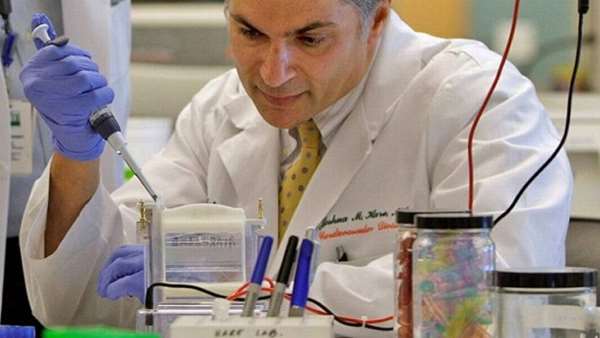Stem cell infusions improved health in frail elderly, UM researchers say
There’s no miracle medicine to combat signs of aging, such as fatigue, muscle weakness and loss of balance.
There’s no miracle medicine to combat signs of aging, such as fatigue, muscle weakness and loss of balance.
But as scientists work to unlock the mysteries of why some 80-year-olds must live in nursing homes while others play tennis every week, researchers with the University of Miami’s Interdisciplinary Stem Cell Institute report they have found the beginnings of what may be the first therapeutic treatment for frailty, a common condition of aging that can lead to falls and other adverse effects.
An early stage clinical trial conducted in Miami found that elderly patients breathed easier and walked longer distances after receiving a single infusion of stem cells from young and healthy donors, according to two studies published this week in the Journals of Gerontology.
Stem cells have the capability of becoming specialized cells that can repair tissue damage.
“Every human being on the planet is aging,” said Dr. Joshua Hare, founding director of UM’s stem cell institute. “What isn’t understood so well is some people are aging successfully and some people are aging poorly.”
Hare said there’s a biological difference that causes some people to become frail in their old age while others retain mobility and energy, and he believes it has to do with chronic inflammation in the body and the withering of cells and muscle tissue.
But medicine and society have largely accepted frailty as inevitable, Hare said.
“It’s easy to draw a conclusion that, ‘Oh, well, this is going to happen anyway, and some people are luckier than others,’ ” he said.
Early findings from Hare’s clinical trials may challenge those assumptions.
The first phase of Hare’s study, which involved 15 people, showed that stem cell infusions were safe for patients. A second phase, which included 30 people, found that those who received a single stem cell infusion treatment showed improved lung function and an ability to walk farther than the group that received a placebo.





ارسال به دوستان